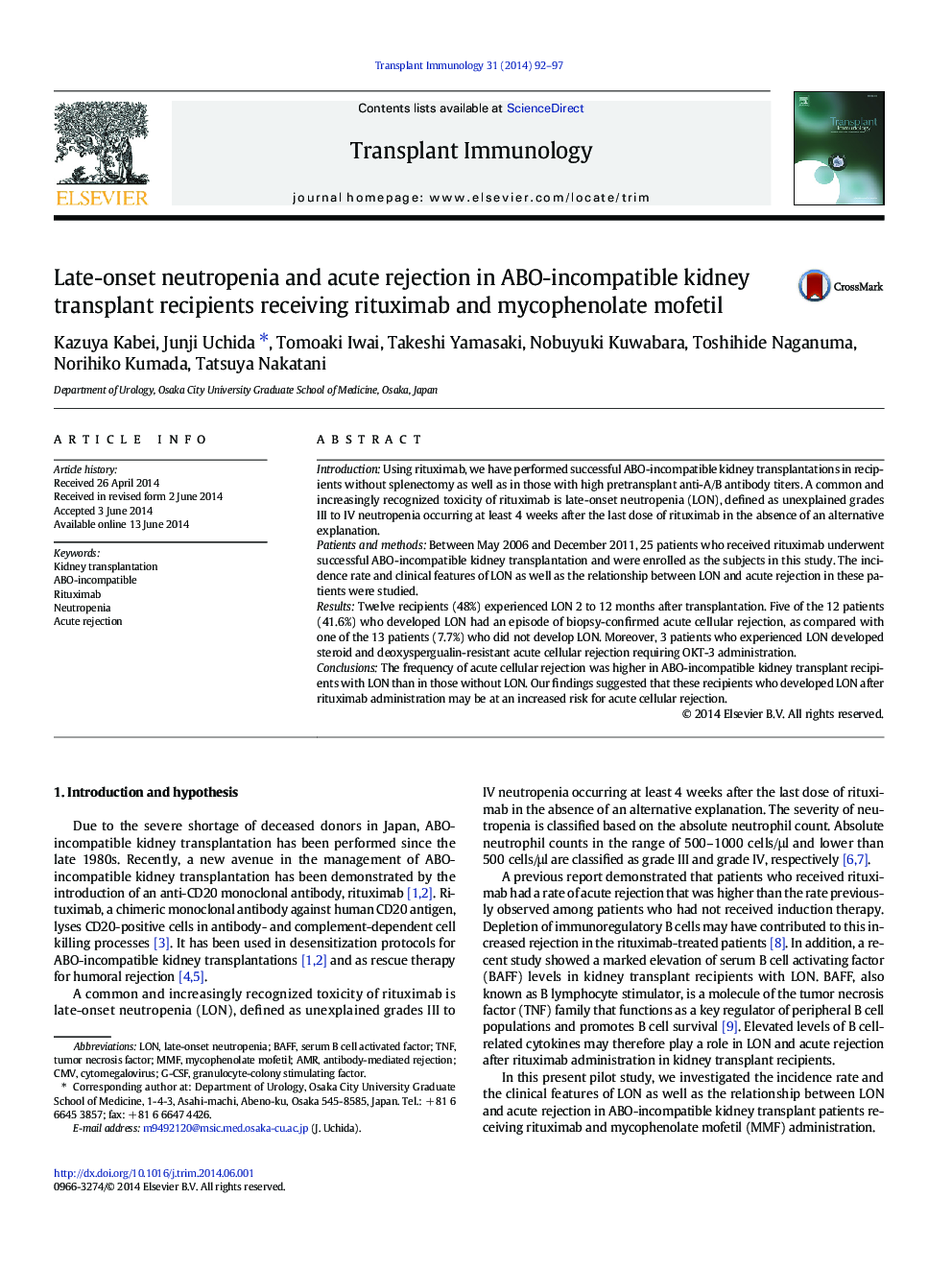| Article ID | Journal | Published Year | Pages | File Type |
|---|---|---|---|---|
| 3392085 | Transplant Immunology | 2014 | 6 Pages |
•Rituximab (R) has been used in ABO-incompatible kidney transplantations (ABOi Tx).•A common toxicty of R is late-onset neutropenia (LON).•In this study, 48% of the ABOi Tx recipients who received R developed LON.•Surprisingly, 41.6% of the recipients with LON had an episode of acute rejection.•LON after R administration may be at an increased risk for acute rejection.
IntroductionUsing rituximab, we have performed successful ABO-incompatible kidney transplantations in recipients without splenectomy as well as in those with high pretransplant anti-A/B antibody titers. A common and increasingly recognized toxicity of rituximab is late-onset neutropenia (LON), defined as unexplained grades III to IV neutropenia occurring at least 4 weeks after the last dose of rituximab in the absence of an alternative explanation.Patients and methodsBetween May 2006 and December 2011, 25 patients who received rituximab underwent successful ABO-incompatible kidney transplantation and were enrolled as the subjects in this study. The incidence rate and clinical features of LON as well as the relationship between LON and acute rejection in these patients were studied.ResultsTwelve recipients (48%) experienced LON 2 to 12 months after transplantation. Five of the 12 patients (41.6%) who developed LON had an episode of biopsy-confirmed acute cellular rejection, as compared with one of the 13 patients (7.7%) who did not develop LON. Moreover, 3 patients who experienced LON developed steroid and deoxyspergualin-resistant acute cellular rejection requiring OKT-3 administration.ConclusionsThe frequency of acute cellular rejection was higher in ABO-incompatible kidney transplant recipients with LON than in those without LON. Our findings suggested that these recipients who developed LON after rituximab administration may be at an increased risk for acute cellular rejection.
